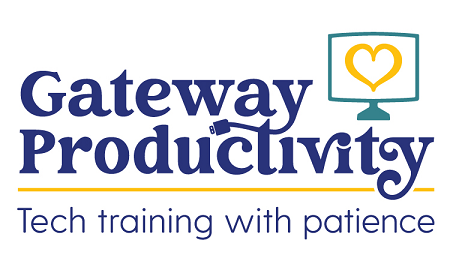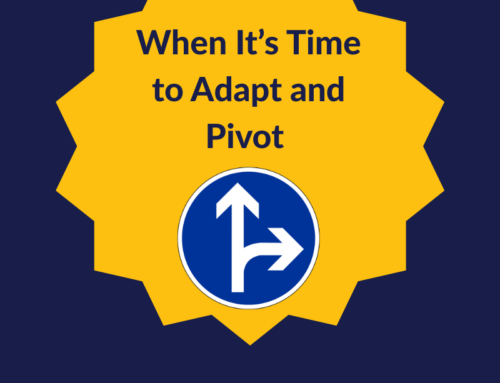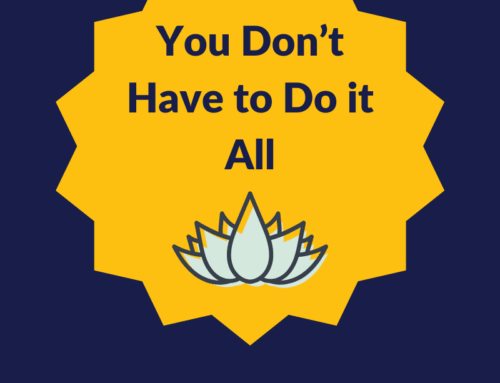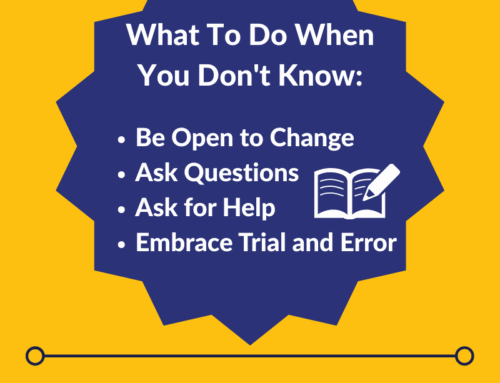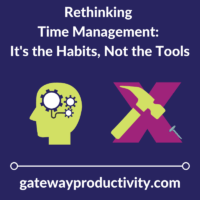
Have you ever found yourself searching for just the right planner, calendar, app, or system in an attempt to tackle challenges with time management?
The good news is, you are not alone. I’ve given numerous presentations on the topic of time management over the years to a wide variety of audiences including educators, homemakers, corporate teams, entrepreneurs, management teams and non-profits. Every time I speak on the topic of time management, I open with a question:
Who here has tried to solve their time management challenges by finding the right planner, calendar, app, or system?
Every time, without fail, a majority of hands in the room go up. But when I ask the following question, all but a few of those hands go back down: Who has found something that really works?
Why the Tools Won’t Fix the Problem
Here’s the rub. Just as a hammer cannot drive a nail by itself, a time management tool cannot manage your time without input from you.
I’ve worked with a variety of clients over the years on the topic of time management, and no two systems to manage tasks, schedules, and projects are ever the same. But they all start in the same place: developing the habits first.
The presentation I give on this topic is an hour’s worth of content, but here is the bottom line: Before searching for the right tool, develop good habits.
How to Start Building the Habits
Start by choosing paper or digital and commit to using what you already have. If paper, a plain notebook and any old calendar will do. If digital, use the calendar and task list that already exist on your preferred device. Just as any hammer can drive a nail with help from you, basic tools can do the job well enough to develop the foundational habits of time management.
Using these simple tools, work on developing the first foundational habit: WRITE IT DOWN.
The very moment a task or calendar event comes up, write it in your notebook or on your calendar.
The part of our brain that remembers to remember to do the right thing at the right time or in the right place, called prospective memory, relies on cues. If we do not provide reliable cues in the form of calendar appointments or task lists, we are setting ourselves up to forget.
Strengthen Your Time Management Foundation
Of course, there is more to time management than writing things down. In my presentation, I cover the next two foundational habits: prioritizing and planning. However, neither of these can be done with any success without first mastering the habit of capturing everything, as one cannot prioritize from an incomplete list or plan from an unreliable calendar.
If you struggle with keeping an accurate calendar and/or task list, focus on mastering the art of capturing things before they can be forgotten. Once that habit is firmly in place, you can begin working on the other foundational habits.
For ideas on building your prioritizing and planning/scheduling habits, see our blog How to get to-do’s done.
Written by Asher Collins. Asher has since left Gateway Productivity to pursue his passion in ADHD coaching. You can find him here.
